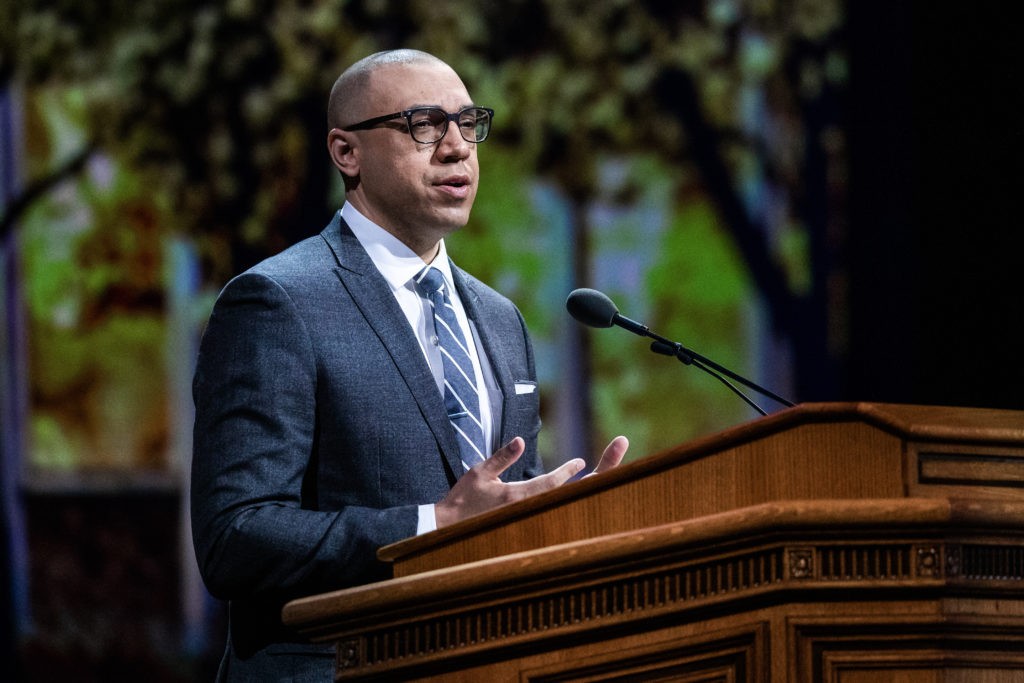
BYU sociology professor Ryan Gabriel spoke on the power of Jesus Christ’s Atonement to heal racism in the April 6 BYU devotional.
“The Savior invites all of us to share in His abundant gifts of love and redemption, where racial and economic status are inconsequential, where each of us can partake of His nourishing word, and where we are inherently equal,” he said.
The Atonement of Jesus Christ can heal racism by assuring victims Christ has suffered with them, providing peace to those who show Christlike love and teaching people how to care for one another, he said.
The roots of racism are pride and greed, which come from the adversary, he said. The fruits are hatred towards one another. “Without question, it is a sin to believe that the color of one’s skin or cultural heritage makes one inherently better than another.”
Gabriel elaborated on the horrors of slavery, which involved “horrendous abuse” and tore families apart, and shared other violations that occurred after slavery’s abolishment, such as convict leasing laws and lynching.
“It is exceedingly painful to imagine this type of treatment toward our sisters and brothers,” he said.
But he assured listeners they could find peace in knowing that the Savior knows and has wholly felt the exact pain of each individual subjected to violence and prejudice.
When he shared the stories of individuals who suffered indignities or even death for protesting racial injustice, he quoted the Savior’s words found in Matthew 5: “blessed are they which are persecuted for righteousness’ sake: for theirs is the kingdom of heaven.”
The Savior taught people to be loving and generous towards others, but nobody can do so by ignoring race, he said.
“To pretend race is not important does not show compassion for the experiences of others who, by virtue of their experiences with racism, know that it is,” he said. It is easy and often innocent to attempt not to see race, but it limits individuals’ capacity to serve others in ways that are most beneficial.
He suggested gratitude as a remedy for racism — gratitude for diversity, for the gift of forgiveness and for brave individuals who sacrificed their lives so people today can live in a more racially just society.
Because racism is often justified by pride and greed, Gabriel said gratitude to God can provide a humble understanding that no one is greater than another.
He urged listeners to develop a testimony that all spirits consist of the same divine material, coming from the same Heavenly Parents. It is everyone’s job to alleviate the suffering caused by the legacies of racism, he said.
“The Savior took upon Himself sin for which he was not responsible,” he said. “He did so because He loves us; we can do so because we love Him.”




